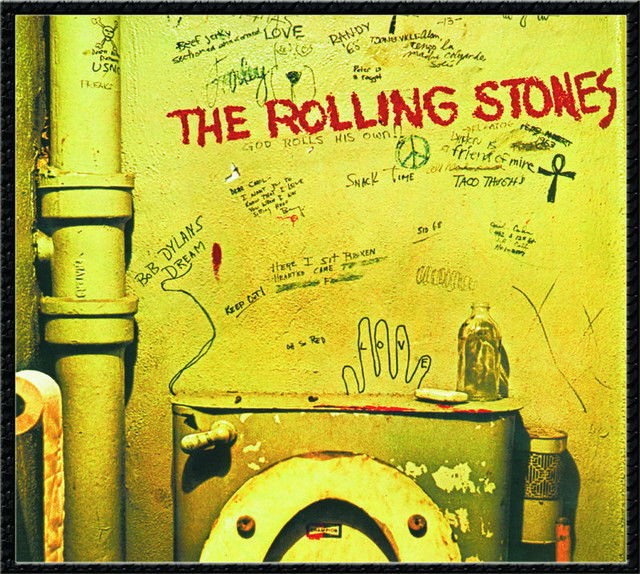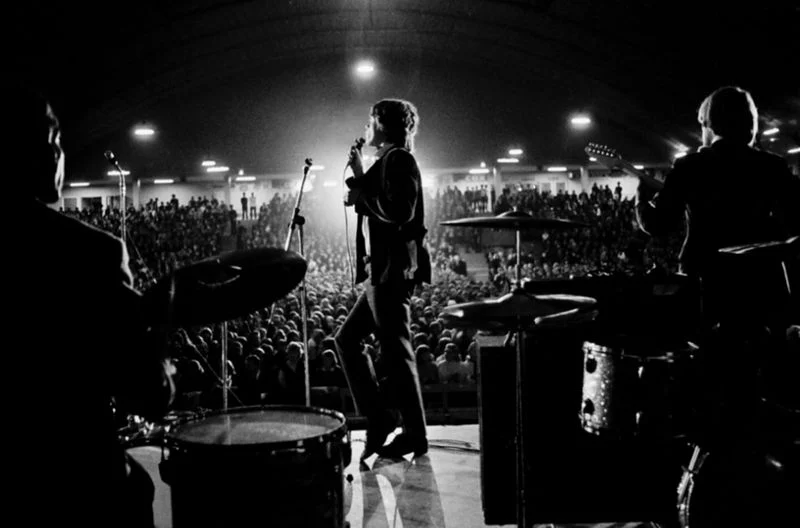Song Stories: The Rolling Stones: Street Fighting Man
The Rolling Stones have always been known for their rebellious spirit and ability to capture the zeitgeist of the times. Few songs exemplify this more than ‘Street Fighting Man,’ the opening track of their 1968 album 'Beggars Banquet'. At the height of social and political unrest, the song became an anthem of defiance, capturing the tense atmosphere of the late 1960s with its urgent, gritty sound and fiery lyrics. But beneath the raucous instrumentation lies a much deeper message.
1968 was a year marked by intense global protests and civil unrest. From student riots in Paris to protests against the Vietnam War, the world was on fire. In the United States, the assassination of Martin Luther King Jr. and the subsequent civil rights protests were creating waves of social upheaval. It was within this climate of agitation and change that ‘Street Fighting Man’ was born.
The Beatles talked about revolution, in the same year, but they didn't have the same snarl and grit on 'Revolution' that the Stones possessed on 'Street Fighting Man'. It was a much more dramatic affair, Jagger had attended a anti Vietnam War rally, and was witness to what was happening in Paris and the States. What they were writing about felt real. Keith Richards managed to sum up the times best with a simple comment, "Our generation was bursting at the seams.”
The song talks about the perils that those who were protesting were facing, but also managed to tackle the bands situation perfectly “But what can a poor boy do/except to sing in a rock ‘n’ roll band?” They didn't have the power to make a change, but they hoped that the song could highlight what was happening.

'Street Fighting Man' became the first single from the bands 1968 record 'Beggars Banquet' which also featured 'Sympathy for the Devil' and 'No Expectations'. In the years since it's release this is often considered one of the finest songs that the Stones ever wrote and recorded. It has since been covered by numerous artists including Bruce Springsteen on his 1985 'Born in the USA' tour, and in 1997 by Oasis.
Bruce Springsteen would comment "That one line, 'What can a poor boy do but sing in a rock and roll band?' is one of the greatest rock and roll lines of all time ... [The song] has that edge-of-the-cliff thing when you hit it. And it's funny; it's got humour to it."
Not everyone in the US was a fan though, upon it's release some radio stations, in particular radio stations in Chicago refused to play the song. Due to violent confrontations between the police and anti-Vietnam War protesters at the 1968 Democratic National Convention in Chicago. Mick Jagger did not seem to concerned by the ban however, who stated: "I'm rather pleased to hear they have banned (the song). The last time they banned one of our records in America, it sold a million." Jagger said he was told they thought the record was subversive, to which he snapped: "Of course it's subversive! It's stupid to think you can start a revolution with a record. I wish you could."

Keith Richards weighed into the debate when he said that the fact a couple of radio stations in Chicago banned the record "just goes to show how paranoid they are". At the same time they were still requested to do live appearances and Richards said: "If you really want us to cause trouble, we could do a few stage appearances. We are more subversive when we go on stage."
The song is one of the greatest protest anthems of all time, and it has a perfect sound. Despite what people may think there's no electric guitar at all. The whole song is played on acoustic guitar. It's raw and almost folk like in places, which gives the song a rather unique edge. It perfectly manages to evoke the feeling of potential unrest, and lack of stability of the time.
Charlie Watts’ drumming on ‘Street Fighting Man’ is powerful and precise, providing a backbone for the song that is both rhythmic and militaristic. His steady beats underscore the political urgency of the song, while the horn section (which was recorded on the fly) adds an extra layer of intensity. The combination of the aggressive guitar riff, martial drumming, and brass instrumentation creates a sense of tension that mirrors the social upheaval of the time.
While it’s tempting to view ‘Street Fighting Man’ purely as a product of its time, its impact stretches far beyond the 1960s. The song remains relevant today, continuing to inspire musicians, activists, and fans alike. The rebellious spirit of 'Street Fighting Man' resonates with those who feel powerless in the face of systemic oppression or social injustice. Its message of defiance, frustration, and the desire to make change.
‘Street Fighting Man’ is one of The Rolling Stones’ most iconic and enduring songs. With its raw, fiery energy and lyrics that capture the frustrations of a generation, it has left a lasting legacy in both the music world and the broader cultural landscape. In many ways, the song represents the perfect fusion of rock ‘n’ roll rebellion and social protest.
In my opinion it's the bands finest moment, and one of the very best songs of the 1960s.